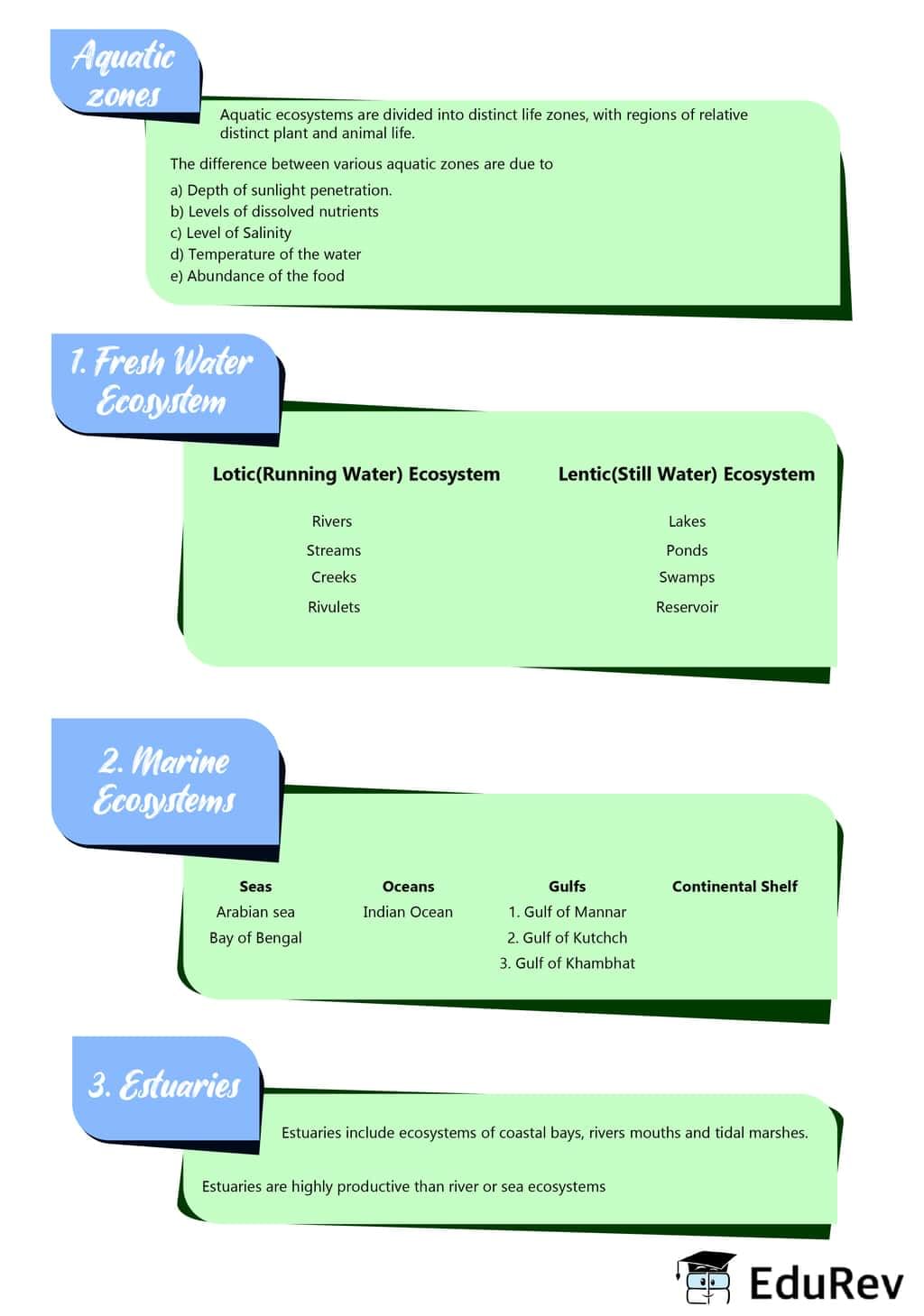UPSC Exam > UPSC Notes > Environment for UPSC CSE > Mind Map: Aquatic Ecosystem
Mind Map: Aquatic Ecosystem | Environment for UPSC CSE PDF Download

The document Mind Map: Aquatic Ecosystem | Environment for UPSC CSE is a part of the UPSC Course Environment for UPSC CSE.
All you need of UPSC at this link: UPSC
|
95 videos|230 docs|52 tests
|
FAQs on Mind Map: Aquatic Ecosystem - Environment for UPSC CSE
| 1. What is an aquatic ecosystem? |  |
Ans. An aquatic ecosystem refers to a community of organisms that depend on water to survive. It includes various bodies of water such as rivers, lakes, oceans, and wetlands, along with the living organisms and their physical environment within these water bodies.
| 2. How are aquatic ecosystems different from terrestrial ecosystems? |  |
Ans. Aquatic ecosystems differ from terrestrial ecosystems primarily due to the presence of water. While terrestrial ecosystems are found on land and rely on atmospheric oxygen, aquatic ecosystems are water-based and have a high concentration of dissolved oxygen. Additionally, the types of organisms and adaptations in aquatic ecosystems are distinct from those in terrestrial ecosystems.
| 3. What are the main threats to aquatic ecosystems? |  |
Ans. Aquatic ecosystems face various threats, such as pollution from industrial and agricultural activities, habitat destruction, overfishing, invasive species, climate change, and water extraction. These threats can lead to a decline in water quality, loss of biodiversity, and disruption of ecological balance within these ecosystems.
| 4. How do aquatic ecosystems contribute to the overall health of the planet? |  |
Ans. Aquatic ecosystems play a vital role in the overall health of the planet. They act as a habitat for numerous species, provide a source of food and livelihood for communities, regulate the climate by absorbing carbon dioxide, produce oxygen through photosynthesis, and support nutrient cycling. Additionally, they contribute to water purification and serve as a recreational and aesthetic value for humans.
| 5. What are the different types of aquatic ecosystems? |  |
Ans. Aquatic ecosystems can be classified into various types based on their characteristics and location. Some common types include freshwater ecosystems (such as rivers, lakes, and ponds), marine ecosystems (oceans and seas), estuaries, wetlands, coral reefs, and mangrove forests. Each type of ecosystem has its unique set of organisms and ecological processes.
Related Searches





















